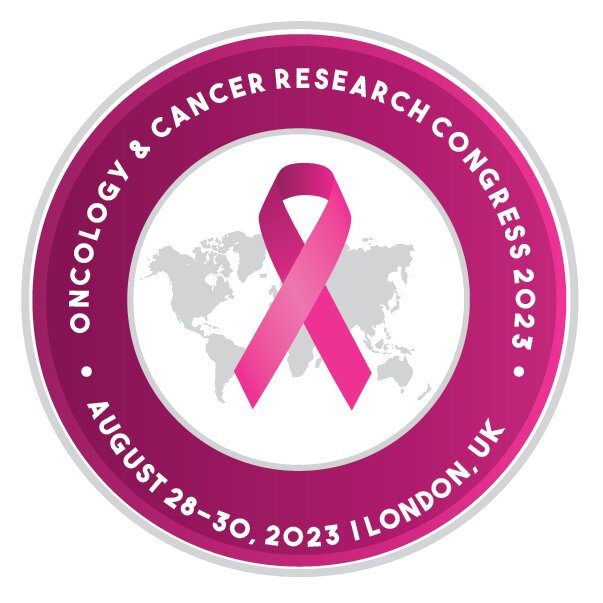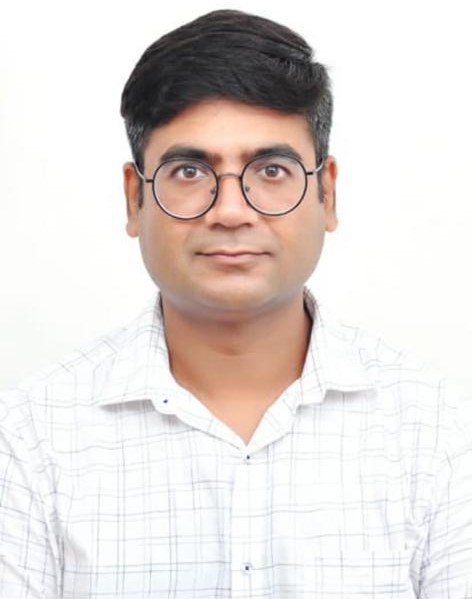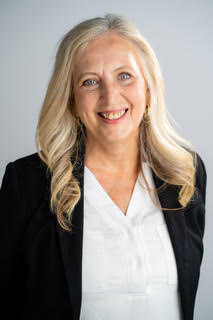Renowned Speakers
We’ve invited the top most influential speakers from around the world to give inspirational talks and lead practical workshops.
Conference Information
Welcome Message
We are co-ordinately inviting you to the “2nd Annual Congress on Oncology and Cancer Research” which is scheduled for 28th to 30th August 2023.
Oncology Congress 2023 welcomes everyone to explore, learn from, and share their research knowledge and experience in the field of oncology, including researchers, brand exhibitors, investigators, doctors, professors, academics, delegates, and students from across the world.
Oncology Congress 2023 is going to be a fantastic venue for the presentation of engaging and inspiring keynote speeches on oncology, as well as lectures on cancer symptoms, early warning signs, and oral and visual presentations on cancer awareness.
To benefit from the most recent scientific advancements and significant events in the field of oncology we would like to use this opportunity to invite your active participation in this oncology conference in 2023.
Welcome you to the Oncology Congress 2023.
Regards
International Organizing Commitee
Oncology Congress 2023
Email: oncologycare@surgerycongress.com
Market Analysis
Due to the rising number of oncology-related clinical trials and companies investing in cancer therapeutics, the size of the pipeline of therapies currently undergoing clinical testing, the introduction of novel drug substances, and the rising level of global investment in oncology, oncology is regarded as the most innovative area of therapy.
The rising use of tobacco and alcohol is contributing to the expansion of the worldwide oncology industry. The GLOBOCAN study from the International Institute for Research on Cancer (IARC) estimates that there were 10.3 million cancer-related deaths and 19.3 million new cases of cancer worldwide in 2020. The IARC predicts a 47% global increase in new cancer cases between 2020 and 2040. Because of this, the global usage of oncology diagnostics and oncology treatments is anticipated to rise, driving the expansion of the global oncology market. In addition, expanding government and non-profit programs to promote cancer prevention is anticipated to support market expansion. For instance, the Global Action Plan for the Prevention and Control of Noncommunicable Diseases of the World Health Organization intends to reduce early death from diabetes, cardiovascular disease, cancer, and other chronic respiratory diseases by about 25% by 2025. Global demand for early cancer diagnosis and treatment has increased due to the rising frequency of numerous chronic diseases.
Oncology Market Segmentation: The oncology market is divided into sections based on indication, region, diagnostics, and treatment.
Some sales insights revealing Oncology's rapid growth in recent years:
- 64 oncology new active substances have been launched globally in the last five years.
- In 2020, the cancer treatment segment was expected to account for approximately 56% of the global Oncology market share.
- In 2020, there will be approximately 19.3 million new cancer cases and approximately 10 million cancer-related deaths.
- Globally, new cancer cases are expected to rise by 47% between 2020 and 2040.
- In 2020, approximately 1.8 million people died as a result of lung cancer.
- In 2020, breast cancer will account for approximately 2.3 million new cancer cases or 11.7% of all new cancer cases.
Scientific Sessions
Session 1: Oncology
Oncology is the branch of medicine that deals with the diagnosis and treatment of cancer. When the cells don't obey the body’s control mechanism then the growth of cells becomes abnormal which results in cancer. Different types of cancer exist, each behaving differently despite its ability to grow, divide, and re-divide.
- Medical Oncology
- Surgical Oncology
- Clinical Oncology
- Radiation Oncology
- Neuro-Oncology
- Computational Oncology
- Exercise Oncology
Session 2: Oncologists
An Oncologist is specialized in the treatment of cancer. Oncologists diagnose cancer and identify treatment options. Oncologists are also known as specialists. The responsibilities are: explaining the cancer diagnosis and stage, when discussing treatment options and their preferred option, providing high-quality, compassionate care Assisting the patient in dealing with the symptoms and side effects of cancer and treatment.
- Medical Oncologist
- Surgical Oncologist
- Radiation Oncologist
Session 3: Cancer and its types
Cancer is the abnormal and uncontrolled growth of cells that affects normal body tissues. The cancerous cells invade and spread to the other parts of the body through blood and lymph systems. Cancer cells can disrupt normal organ function when they develop. This can lead to a reduction in oxygen supply and the accumulation of waste products. It is possible to die if vital organ function is impaired. Worldwide cancer is the leading cause of death.
- Carcinoma
- Sarcoma
- Melanoma
- Lymphoma
- Leukaemia
Session 4: Cancer stages
Cancer is mainly classified into four stages; the fourth stage is the most dangerous. The early stage of cancer is Stage I which affects a small area. Stage II Cancerous cell grows and doesn’t spread to lymph systems. Stage III Cancerous cells spread to lymph systems and other tissues. Stage IV is known as metastatic or advanced cancer in which the cancerous cells spread to other organs of the body.
- TNM Staging Systems
- Clinical Staging
- Pathological Staging
- Post Therapy Staging
Session 5: Oncogenesis
Oncogenesis is the transformation of healthy cells into cancer cells. A series of genetic and cellular changes, including oncogene activation, causes the cell to divide uncontrollably. Oncogenesis which is occurring in cancer patients and cannot be reversed. Many cancer treatments aim to eliminate cancerous cells from the body.
- Molecular Oncogenesis
- Human viral Oncogenesis
Session 6: The Biology of Cancer
Our cells are genetically designed to perform a variety of tasks throughout our lives. New cells are needed to replace worn-out cells that die in a predictable cycle. When a cell's DNA becomes faulty, the cells can begin to expand uncontrollably, resulting in the formation of a tumor – a 'swelling,' but in the context of cancer, the term refers to abnormal tissue growth.
- Metastasis
- Immunotherapy
- Carcinogenesis
Session 7: Cancer detection and treatment
Cancer is suspected based on symptoms, physical examination findings, and, in some cases, screening test results. X-rays obtained for other reasons, such as an injury, may occasionally reveal abnormalities that could be cancer. Other tests are required to confirm the presence of cancer (termed diagnostic tests). The majority of people receive a combination of treatments, such as surgery combined with chemotherapy and radiation therapy.
- Imaging Tests
- CT Scan
- MRI Scan
- PET
- Biopsy
Session 8: Prevention of Cancer
Cancer prevention and risk-reduction efforts significantly lessen the disease's financial, emotional, and physical toll and enhance the general health of cancer survivors, including lowering the risk of developing second cancer.
It is also important to note that not all cancers are avoidable, even though the risk of developing cancer can be significantly decreased by avoiding risk factors.
Session 9: Oncology Pharmacy
Oncology-specialist pharmacists play an important role in the healthcare team. Pharmacists also help with the overall drug plan coordination, which includes everything from inpatient chemotherapy infusions to which pills must be taken at home. Pharmacists are knowledgeable about pharmaceuticals and how they work in the fight against cancer.
- Chemotherapy
- Assessment and Diagnosis
- Radiotherapy
Session 10: Chemotherapy
Chemotherapy medications, in general, work by attacking cells or preventing them from growing and dividing. Cancer cells proliferate and divide at an uncontrollable rate. Many chemotherapy drugs are specifically designed to inhibit this type of rapid cell growth. Chemotherapy is a systemic treatment. This means it circulates throughout the body via the bloodstream.
- Intravenous (IV) Chemotherapy
- Oral Chemotherapy
- Injected Chemotherapy
- Chemotherapy into an artery
- Chemotherapy into the peritoneum or abdomen
- Topical Chemotherapy
Session 11: Cancer Radiation Therapy
Radiation Therapy treatment uses high-energy radiation to destroy cancerous cells. The heavy dose of radiation kills the cancer cells and shrinks tumors by damaging their DNA. The body breaks and eliminates the damaged cells when they die.
- Side effects of radiation therapy
- External beam radiation therapy
- Internal radiation therapy
Session 12: Clinical Tests
Clinical Tests are the primary means by which doctors discover new treatments. Cancer and other diseases are being studied in clinical tests. Clinical Tests also assist physicians in learning how to prevent disease and treat symptoms and side effects.
- Clinical Trials for new treatments
- Clinical Trials for side effects and symptoms
- Clinical Trials for long-term side effects
- Clinical Trials to prevent
Session 13: Cancer Drugs and Vaccines
Cancer drugs are divided into several categories, including natural products, alkylating agents, hormones, and antimetabolites. Vaccines are given to healthy people to protect them from certain bacteria or viruses that spread diseases. Throughout your life, you will be given numerous vaccines to help prevent common illnesses. Cancer vaccines are also available. There are both cancer prevention and cancer treatment vaccines.
- HPV Vaccine
- Hepatitis B Vaccine
Session 14: Surgical Oncology
Surgical oncology is a branch of medicine dedicated to the surgical treatment of cancer tumors. Chemotherapy, radiation therapy, surgery, hormone therapy, bone marrow transplant, immunotherapy, targeted drug therapy, and other cancer treatment methods are available. A surgical oncologist is essential in multidisciplinary cancer care. They are trained to handle both simple and complex primary and secondary cancer cases.
- Diagnostic Surgery
- Preventive Surgery
- Staging Surgery
- Curative Surgery
- Reconstructive Surgery
- Palliative Surgery
Session 15: Clinical Oncology
Clinical Oncologists are cancer specialists who use a combination of radiotherapy and chemotherapy to treat patients. They are involved in the management of all types of cancer and use a variety of non-surgical treatments to treat cancers. A clinical oncologist’s role is very collaborative.
- Radiotherapy
- Systemic therapy
- Brachytherapy
Session 16: Head and neck cancer
Head and neck cancer begins in the head and throat regions. The major cause of head and neck cancer is the consumption of alcohol and tobacco products. When the head and neck regions are exposed to radiation leads to head and neck cancer.
- Melanoma
- Basal cell cancer
- Sarcoma
- Squamous cell cancer
Session 17: Breast Cancer
Breast cancer occurs when the cells in the breast region grow abnormally. Breast cancer mainly occurs in women and rarely in men. The cancerous cells in the breast can also spread outside via blood vessels and lymph vessels. It is the world’s second leading cause of cancer death among women.
- Invasive ductal carcinoma
- Invasive lobular carcinoma
- Phyllodes tumor
- Angiosarcoma
Session 18: Melanoma and Other Skin Cancer
Melanoma, the deadliest form of skin cancer, grows in the cells (melanocytes) that produce melanin, the pigment that gives your skin its color. Melanoma can also develop in the eyes and, in rare cases, inside the body, such as the nose or throat.
Although the exact cause of all melanomas is unknown, exposure to ultraviolet radiation (UV) from sunlight or tanning lamps and beds raises your risk of developing melanoma. Limiting your exposure to UV radiation may help lower your risk of developing melanoma.
- Nodular melanoma
- Lentigo Malinga
- Acral Lentiginous Melanoma
- Superficial Spreading melanoma
- Melanoma in situ
Session 19: Cancer Biomedical Advancements
Biomedical instruments are used to help with the diagnosis, monitoring, and treatment of medical conditions. Several new types of cancer treatment equipment, such as:
Ultrasound and radiography - Ultrasound is a non-invasive method of obtaining an image of the internal organs. It is helpful for cancer patients to examine their abdomen for any lymph enlargement or masses.
Linear Accelerator (LINAC) - It emits highly localized radiation (X-rays) and is used in the treatment of cancer. The 6 MeV linear accelerator with surface electron capability allows the treatment of cancer cells even under the subcutis layer overlying the cranium. The connected display unit allows the patient to see his activity as well.
Session 20: Supportive care
Supportive care is an important component of cancer care that is provided in addition to treatments to slow, stop, or cure the disease. According to research, supportive care can improve your quality of life and make you feel more satisfied with your treatment.
- Children’s Palliative Care
- Hospice care
About Congress
Oncology Congress 2023 inviting all the participants from various places to the “2nd Annual Congress on Oncology and Cancer Research” during June 28-30, 2023. The conference feature oral presentations, poster and e-poster presentations, workshop, exhibits, and symposia, all of which provides a great opportunity for learning new insights in the field of Oncology.
The meeting is intended for oncologists as well as the other medical experts who are associated with the Oncology, Medical Imaging and Radiotherapy.
This Congress will provide an extraordinary stage to network with featured subject matter experts, keynote speakers, and other members. Furthermore, as banner and oral introductions, this program will provide an opportunity to introduce research, special strategies, or clinical encounters. We guarantee that all members, including speakers and representatives, will leave with innovative thinking abilities.
Why to attend?
Oncology Congress 2023 aims to bring together the eminent researchers, medical oncologists, health care professionals to spread and advance the current research in the field of Oncology. This is a great opportunity to take away new insights from recent medical practices, particularly in the fields of Medical Oncology, Radiation Oncology, Chemotherapy, Neuro Oncology, Computational Oncology and Oncological Disorders. The young researchers and aspiring scientists would be able to improve their research ideas by attending this conference.
Who to attend?
- Oncologists
- Researchers
- Professors
- Directors
- Pediatric Oncologists
- Scientists
- Exhibitors
- Young Researchers
- Cancer Institutes
- Medical Institutes
- Chemotherapists
- Pharmacists
- Students and Delegates
- Health Care Professionals
- Medicine Manufacturing Companies








